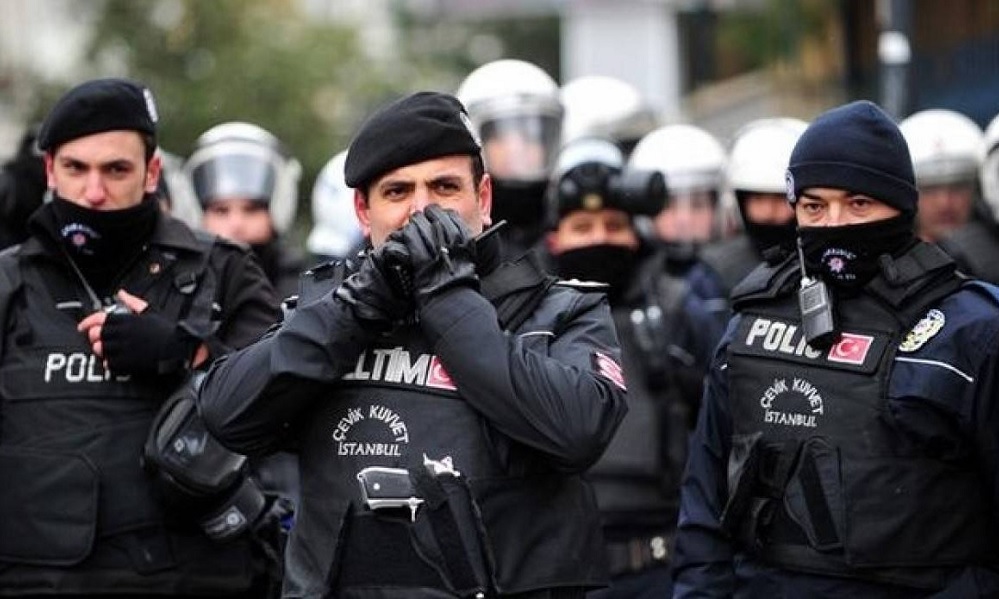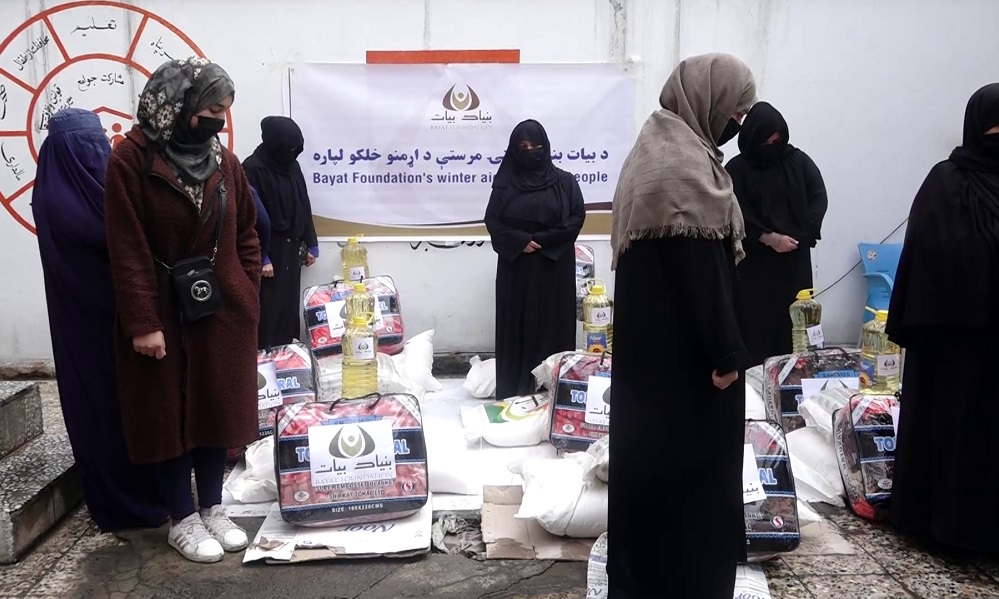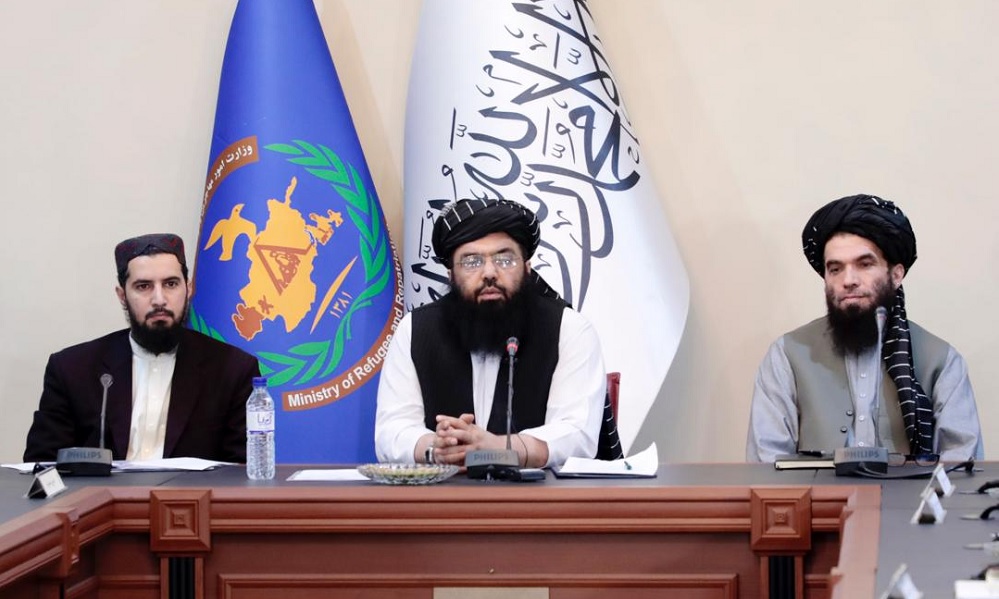Latest News
Explainer: Gaza war after six months – what are the issues now?

Six months since Hamas gunmen stormed into southern Israel on a killing spree, Israel’s ground campaign to annihilate the movement has turned much of the Gaza Strip into a wasteland with an unfolding humanitarian catastrophe.
Mediators have been trying to organize the first extended truce of the war to rush in aid to feed the Palestinian territory’s 2.3 million people and secure the release of some of the Israeli hostages still held by Hamas.
Here is a look at the issues raised by the war and the prospects for peace.
HOW DID THE WAR START?
On Oct. 7, hundreds of gunmen crossed a border fence that Israel had believed was impregnable, and stormed through communities, gunning down Israelis in homes, cars and at an all-night music festival. Israel says 1,200 people were killed in the deadliest day for Jews since the Holocaust. The attackers brought 253 hostages, including whole families with small children, back to Gaza. Although military bases were attacked, most of the dead were civilians.
Prime Minister Benjamin Netanyahu swore vengeance.
WHAT HAS HAPPENED IN GAZA?
Israel’s ground assault began in the northern half of the Gaza Strip and hundreds of thousands of residents were ordered to evacuate and flee south. After a week-long ceasefire at the end of November, Israeli forces turned their attention to the south, again ordering people to flee.
Since February, Israeli forces have patrolled nearly all of Gaza, apart from a small area in the center and the city of Rafah on the southern edge, where more than half of Gaza’s population is now sheltering.
Gaza’s health authorities say about 33,000 Palestinians have been confirmed killed, around 40 percent of them children, with thousands more bodies lost under rubble not recovered. More than 70,000 have been wounded, meaning around 5% of the population has been killed or injured, not counting deaths from hunger, unsanitary conditions and the collapse of health care.
Israel says it has killed more than 13,000 Hamas fighters, and blames militants for harm to civilians for operating among them, including from a network of underground bunkers and tunnels. Hamas denies its fighters operate among civilians.
CAN AID REACH GAZA?
At the outset of the war, Israel imposed a total blockade. Gradually it allowed in aid, first through a pedestrian checkpoint from Egypt, then also through a nearby road checkpoint from Israel itself.
Israel says it imposes no limits on food and humanitarian supplies, but aid agencies and donor countries say cumbersome Israeli inspections mean shipments can be held up for weeks, and only a fraction of the 500 trucks a day Gaza once relied on can get through. Supplies that cross are difficult to distribute or transport because of lawlessness with civil authorities dismantled.
Israel says it is now opening up additional land checkpoints and allowing air drops and sea deliveries. But Gaza has no proper seaport, and aid agencies say air drops are small-scale and dangerous. There is still no land route into northern Gaza where conditions are worst.
IS GAZA EXPERIENCING FAMINE?
Nearly. A famine has three stages – severe shortage of food, leading to pervasive malnutrition, and ultimately mass death from starvation and disease. The Integrated Food-security Phase Classification (IPC) global hunger monitor says Gaza has already surpassed the first two criteria – food shortage and malnutrition – and mass death will begin “imminently” without an immediate aid surge. It projects famine by May.
The IPC has said for months that Gaza is experiencing the most pervasive food insecurity it has ever seen.
In a report in March it said 100 percent of Gazans were experiencing severe food shortages, and for half of the population – far exceeding the 20% rate associated with famine – this had reached the highest level, category 5 or “catastrophe”.
In southern Gaza, where Reuters journalists operate, some residents have resorted to feeding their children boiled leaves. Reuters saw a number of children being treated for acute malnutrition in a hospital in Rafah, while conditions are reported to be far worse in the north.
Israel says the IPC report’s methodology is flawed and claims that there is no shortage of food in Gaza. It blames any hunger on aid agencies’ operations and on militants it says are hoarding food.
In addition to hunger, aid agencies worry about a lack of healthcare and sanitation. There are no fully functional hospitals left in the north, and only a handful in the south. Israel has repeatedly raided and besieged hospitals, saying Hamas fighters use them as bases, which medical staff deny.
Overcrowding fosters the spread of disease, and many people have little or no access to a sanitary toilet or place to wash.
WILL ISRAEL ATTACK RAFAH?
With half of Gazans now crammed into Rafah, residents say there is no place left to flee. Israel says the main Hamas armed units and commanders are sheltering there, and a ground assault is needed to defeat them. It has promised to coordinate with Egypt and to evacuate civilians further north inside Gaza, giving few details.
Washington has called the planned assault a mistake and says Israel can target militants with tactics that would cause less harm to civilians. The United Nations says an assault on Rafah would cause a humanitarian catastrophe. Many Palestinians say they fear Israel’s ultimate aim is to drive them from Gaza into Egypt, which Israel denies.
WHAT IS THE STATUS OF CEASEFIRE AND HOSTAGE TALKS?
Since the war’s only ceasefire so far at the end of November, when Hamas freed around half of its hostages, the sides have held talks mediated by Qatar and Egypt on a further truce.
Both sides have proposed a new ceasefire of around 40 days, including the release of around 40 hostages in return for hundreds of Palestinian detainees. Each has rejected the other’s proposals, but mediators say the talks remain productive.
Israel says it will discuss only a temporary pause in fighting and will not end the war until Hamas is annihilated. Hamas says it will not free its hostages without an agreement envisioning an end to war and Israeli withdrawal.
WHAT IS HAPPENING ON OTHER BATTLEFRONTS?
The war has been accompanied by surging violence in several other Middle East flashpoints, mainly involving armed groups that, like Hamas, are allied to Iran.
On Israel’s northern border it has exchanged regular fire with Hezbollah, a heavily-armed Iran-backed group, forcing the evacuation of tens of thousands of people from villages on both sides.
In the West Bank, where the internationally endorsed Palestinian Authority exercises limited self-rule under an Israeli military occupation, hundreds of people have been killed in the worst violence for decades.
In Syria, Israel has repeatedly targeted suspected bases of Iranian military advisers in air strikes. In Iraq, the United States retaliated against Iran-backed militia groups after strikes on U.S. bases, which have since subsided.
In Yemen, the Iran-aligned Houthi movement that controls the capital has attacked shipping in the Red Sea. Britain and the United States have retaliated with air strikes.
HOW HAS ISRAEL’S RELATIONSHIP WITH WASHINGTON EVOLVED?
As the war has ground on, it has brought increasing friction between Israel and the United States, with little precedent in the 75-year history of their close alliance.
U.S. President Joe Biden strongly endorsed Israel’s right to defend itself against Hamas following the Oct. 7 attacks, but in a speech in Tel Aviv also called on Israelis not to be overwhelmed by anger. Since then he and other administration officials have stepped up calls for Israel to do more to protect civilians and allow in aid.
Washington says its aim is a wider peace deal to normalize relations between Arab states and Israel, which requires prospects for an eventual Palestinian state, a central plank of U.S. policy for decades that Netanyahu has repudiated.
Israel’s plan to attack Rafah has provoked stronger criticism from Washington. In March, the Senate leader of Biden’s Democratic Party called for Israelis to vote Netanyahu out.
Washington later refrained from using its veto to block a U.N. Security Council resolution demanding a ceasefire. Netanyahu responded by canceling an Israeli delegation’s planned trip to Washington.
The United States has continued to supply Israel with arms and munitions. – Reuters
Latest News
Turkish intelligence captures a Daesh member near the Durand Line

Turkish intelligence agents have captured a senior member of Daesh near the Durand Line, reportedly preventing planned suicide attacks in Turkey and other countries, according to Turkey’s state-run Anadolu Agency on Monday.
The suspect, identified as Mehmet Goren, is a Turkish citizen. He was apprehended during a covert operation and transferred to Turkey. Details on the timing of the operation or the involvement of Afghan and Pakistani authorities were not disclosed.
According to the report, Goren had risen through the ranks of Daesh and was allegedly tasked with carrying out suicide bombings in Turkey, Pakistan, Afghanistan, and Europe.
Daesh has a history of deadly attacks in Turkey, including the January 1, 2017 shooting at an Istanbul nightclub that killed 39 people.
Anadolu Agency reported that Goren’s arrest also provided intelligence on the group’s recruitment strategies and planned activities.
Latest News
Dozens of needy families in Kabul receive winter aid from Bayat Foundation

Dozens of needy families in Kabul’s fifth district have received essential winter assistance from the Bayat Foundation, as part of ongoing efforts to ease hardship during the cold season and worsening economic conditions.
According to foundation officials, the aid package includes staple food items such as flour, rice, and cooking oil, along with warm blankets to help families cope with freezing temperatures. Haji Mohammad Ismail, Deputy Head of Bayat Foundation, said the distribution began in Kabul and will soon be expanded to other provinces.
“Our assistance includes flour, rice, cooking oil, and blankets,” Ismail said. “Today, we started distributing these items in Kabul’s fifth district, and God willing, the aid will reach other provinces in the near future.”
Afghanistan continues to face widespread poverty, unemployment, and food insecurity, with many families struggling to meet basic needs, particularly during winter when access to work and heating becomes more difficult.Humanitarian organizations and charitable foundations have stepped up relief efforts to support those most affected.
Beneficiaries welcomed the assistance, describing it as a lifeline. “May God bless you for helping the poor. We had nothing and no work,” said one recipient. Another added, “Thank you for your help. Our flour was almost finished.”
Bayat Foundation officials stressed that winter aid distributions will continue in Kabul and other provinces in the coming days, as part of their broader commitment to supporting needy families across the country.
Latest News
Nearly seven million Afghan refugees return home since Islamic Emirate’s takeover

Since the Islamic Emirate came to power, approximately 6.8 million Afghans have returned home, either voluntarily or forcibly, from neighboring countries and other nations, according to the Minister of Refugees and Repatriation.
Mawlawi Abdul Kabir, speaking at a meeting on finalizing a draft plan for a permanent migration solution in Afghanistan, added that 1.3 million Afghans have been internally displaced due to natural disasters during the same period.
With winter approaching, widespread poverty and severe cold are threatening thousands of lives. Meanwhile, the forced expulsion of Afghan migrants from neighboring countries, particularly Iran and Pakistan, continues.
The Islamic Emirate has repeatedly urged neighboring states to allow migrants to return voluntarily. According to UNHCR, over two million Afghans have returned from Iran and Pakistan since the start of 2025.
-

 Latest News3 days ago
Latest News3 days agoAfghan border forces prevent illegal entry of hundreds into Iran
-

 Latest News3 days ago
Latest News3 days agoPakistan summons Afghan diplomat over deadly attack in North Waziristan
-

 Latest News1 day ago
Latest News1 day agoAfghanistan signs 30-year deal for marble mining in Daikundi
-

 Latest News2 days ago
Latest News2 days agoAfghan health minister calls for medical cooperation between Kabul and New Delhi
-

 Latest News3 days ago
Latest News3 days agoJapan allocates nearly $20 million in humanitarian aid for Afghanistan
-

 Latest News3 days ago
Latest News3 days agoKarzai urges reopening of girls’ schools and universities for Afghanistan’s bright future
-

 Health5 days ago
Health5 days agoAfghanistan seeks India’s support in standardizing traditional medicine
-

 World5 days ago
World5 days agoUS readies new Russia sanctions if Putin rejects peace deal, Bloomberg News reports
























